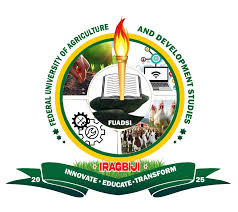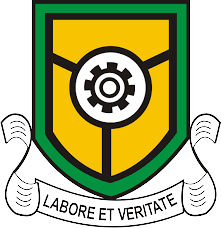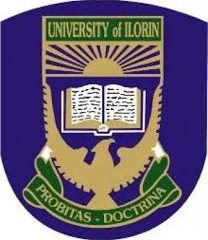
Computers have revolutionized nearly every industry in the world — from healthcare to entertainment, finance, and education. As technology continues to advance, the demand for computer-related professionals keeps growing. Whether you’re a student planning your career path or a professional looking to switch fields, there are numerous exciting opportunities to explore in the computer industry.
In this article, we’ll discuss 50 rewarding careers related to computers, their job descriptions, and why they matter in today’s digital age.
1. Software Developer
Software developers design, create, and maintain computer applications and systems. They work with programming languages like Python, Java, and C++ to develop everything from mobile apps to enterprise solutions.
2. Web Developer
Web developers build and maintain websites and web applications. They use languages such as HTML, CSS, and JavaScript to create user-friendly and responsive websites.
3. Computer Programmer
Programmers write and test the code that allows software programs to function. They often translate software designs into working code using programming languages.
4. Database Administrator (DBA)
DBAs manage databases to ensure data integrity, security, and performance. They use tools like SQL, Oracle, and MySQL to handle large datasets for organizations.
5. Network Engineer
Network engineers design, implement, and maintain computer networks, ensuring connectivity and communication between systems and devices.
6. Cybersecurity Analyst
Cybersecurity analysts protect computer systems from hackers, malware, and data breaches. They monitor networks and implement security measures to keep information safe.
7. Systems Analyst
Systems analysts evaluate and improve computer systems and processes within organizations. They bridge the gap between business needs and technology solutions.
8. IT Support Specialist
These professionals provide technical support to users experiencing computer or software issues. They are often the first point of contact in IT departments.
9. Cloud Engineer
Cloud engineers design and manage cloud-based infrastructure using platforms like AWS, Google Cloud, or Microsoft Azure.
10. Artificial Intelligence (AI) Engineer
AI engineers build intelligent systems that can think, learn, and adapt. They work with machine learning algorithms, neural networks, and natural language processing.
11. Data Scientist
Data scientists analyze large volumes of data to extract valuable insights for decision-making. They use tools like Python, R, and TensorFlow for data analysis and visualization.
12. Game Developer
Game developers create interactive games for consoles, computers, and mobile platforms. They combine creativity and coding to produce engaging digital experiences.
13. Computer Hardware Engineer
These engineers design, test, and develop computer hardware components such as processors, circuit boards, and memory devices.
14. Mobile App Developer
Mobile app developers specialize in creating apps for Android and iOS devices. They focus on functionality, performance, and user interface design.
15. IT Project Manager
IT project managers oversee technology projects, ensuring they are completed on time and within budget while meeting technical requirements.
16. Information Security Manager
They manage an organization’s security strategy and ensure compliance with cybersecurity policies and laws.
17. Computer Systems Administrator
Systems administrators manage and maintain servers and computer networks to ensure smooth operation and security.
18. Data Analyst
Data analysts collect, process, and interpret data to help businesses make informed decisions.
19. UX/UI Designer
UX/UI designers focus on user experience and interface design, ensuring that digital products are easy to use and visually appealing.
20. Robotics Engineer
Robotics engineers design and develop robots that perform automated tasks in industries like manufacturing, healthcare, and logistics.
21. Machine Learning Engineer
These professionals create algorithms that enable computers to learn and improve from experience without explicit programming.
22. IT Consultant
IT consultants provide expert advice to organizations on how to use technology effectively to achieve business goals.
23. Computer Science Teacher
They educate students about computer theory, coding, and digital systems at schools, colleges, and universities.
24. Penetration Tester (Ethical Hacker)
Ethical hackers test systems for vulnerabilities and help companies strengthen their cybersecurity defenses.
25. Software Tester / QA Engineer
Quality Assurance (QA) engineers test software to identify bugs and ensure it meets performance standards before release.
26. Business Intelligence Analyst
BI analysts use data analytics tools to help organizations make strategic decisions and identify growth opportunities.
27. Systems Engineer
Systems engineers design and integrate complex systems within an organization’s infrastructure.
28. Blockchain Developer
Blockchain developers design and implement secure blockchain-based applications, including cryptocurrencies and smart contracts.
29. Computer Forensics Analyst
They investigate cybercrimes and recover digital evidence from devices for use in legal proceedings.
30. Network Architect
Network architects design and plan advanced communication networks for organizations.
31. Cloud Architect
Cloud architects design cloud computing strategies and ensure secure cloud deployment and management.
32. DevOps Engineer
DevOps engineers streamline the development process by integrating software development and IT operations for faster, efficient delivery.
33. Computer Graphics Designer
They create digital art, animations, and graphics for media, games, and marketing materials.
34. Technical Writer
Technical writers create documentation, manuals, and user guides for software and hardware products.
35. Computer Operator
Computer operators monitor and control computer systems and networks to ensure they function properly.
36. IT Auditor
IT auditors assess and ensure compliance with data security and IT governance policies within organizations.
37. Cloud Security Specialist
They focus on protecting cloud-based systems and data from unauthorized access or cyber threats.
38. Full-Stack Developer
Full-stack developers work on both the front-end (user interface) and back-end (server-side) of web applications.
39. Computer Research Scientist
These professionals explore new areas of computer science, creating innovative algorithms and computing technologies.
40. Database Developer
Database developers design and optimize database systems for efficient data storage and retrieval.
41. Multimedia Specialist
They create multimedia content, including audio, video, and interactive designs, often used in education and advertising.
42. Information Systems Manager
They manage an organization’s computer systems, software, and IT staff to support business objectives.
43. Computer Repair Technician
Repair technicians diagnose and fix hardware and software issues on computers and devices.
44. Augmented Reality (AR) Developer
AR developers create interactive applications that combine digital content with the real world through AR technology.
45. Virtual Reality (VR) Developer
VR developers design immersive experiences for gaming, training, and education using VR technologies.
46. SEO Specialist
SEO specialists optimize websites for search engines to increase visibility and traffic through organic search.
47. Digital Marketing Analyst
They analyze digital marketing campaigns and data to optimize performance and drive conversions.
48. E-commerce Manager
E-commerce managers oversee online stores, handle digital sales strategies, and manage website performance.
49. Bioinformatics Specialist
These experts use computer technology to analyze biological data, contributing to research in genetics and medicine.
50. Computer Vision Engineer
They develop systems that allow computers to interpret and understand visual information, used in applications like facial recognition and autonomous vehicles.
Conclusion
Careers related to computers are vast and diverse — offering opportunities across multiple industries. Whether you’re drawn to coding, data analysis, design, or cybersecurity, the computer field offers something for everyone. With continuous technological evolution, acquiring digital skills today ensures you remain relevant and competitive in the future job market.
FAQs About Careers Related to Computers
1. What are the highest-paying computer-related jobs?
Some of the highest-paying jobs include AI engineer, data scientist, cloud architect, and cybersecurity manager.
2. Do I need a degree to work in computer-related fields?
While many roles require a degree, several can be pursued with certifications or self-taught skills, such as web development and ethical hacking.
3. Which computer career is best for beginners?
Beginner-friendly options include IT support specialist, web developer, and data analyst.
4. Are computer-related jobs in demand?
Yes, computer and IT careers are among the most in-demand jobs globally, driven by the increasing reliance on technology.
5. What skills do I need for computer-related careers?
Essential skills include problem-solving, programming, analytical thinking, and familiarity with digital tools and technologies.





![FUTES-IYIN Cut Off Mark 2025/2026 is Out [All Courses] FUTES-IYIN Cut Off Mark 2025/2026 is Out [All Courses]](https://myeduplug.com/wp-content/uploads/2025/10/FUTES-IYIN-4.jpeg)
![FUADSI Cut Off Mark 2025/2026 is Out [All Courses] FUADSI Cut Off Mark 2025/2026 is Out [All Courses]](https://myeduplug.com/wp-content/uploads/2025/10/FUADSI-2.jpeg)
![KASU Cut Off Mark 2025/2026 is Out [All Courses] KASU Cut Off Mark 2025/2026 is Out [All Courses]](https://myeduplug.com/wp-content/uploads/2025/07/KASU.jpeg)
![UNIBEN Cut Off Mark 2025/2026 is Out [All Courses] UNIBEN Cut Off Mark 2025/2026 is Out [All Courses]](https://myeduplug.com/wp-content/uploads/2025/03/UNIBEN.jpeg)









